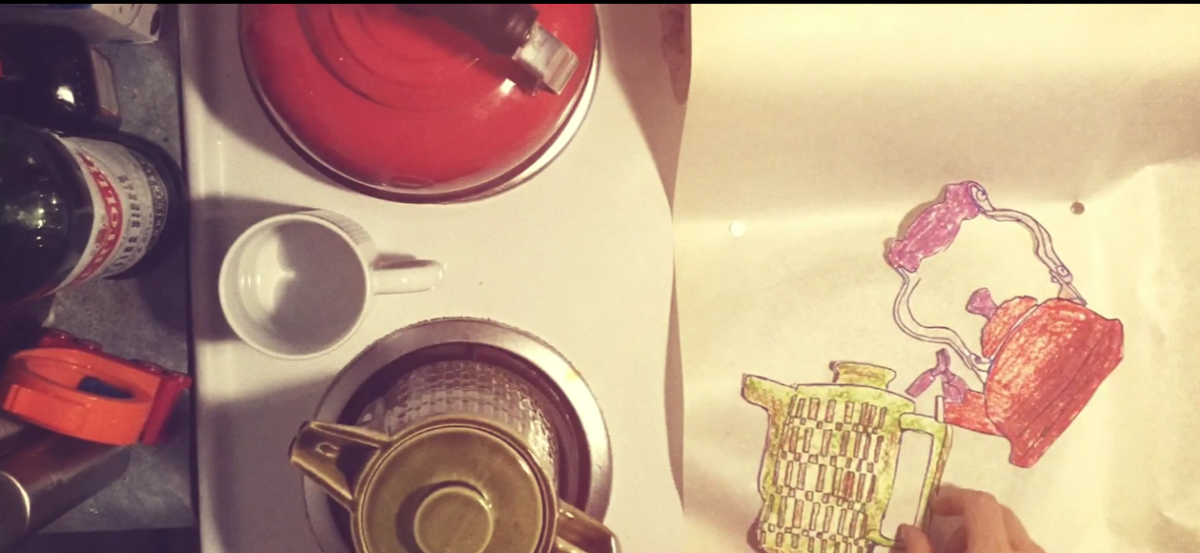
Improv Festival (IF) 2020 was a 24-hour online festival, on August 7 and 8. It featured 100+ original, improvised performances by over 150 artists from around the world. The festival is sponsored by the International Institute of Critical Studies in Improvisation (IICSI), which is housed at the University of Guelph in Ontario.
IF 2020 showcased short performance videos by musicians, spoken word poets, dancers, theatre practitioners, and multidisciplinary artists from over 25 countries captured in response to the COVID-19 pandemic. One of those artists is Sara Ramshaw, an Associate Professor at the University of Victoria’s Faculty of Law. Her research falls broadly in the area of arts-based approaches to law, with a specific focus on improvisatory arts, especially music, dance and theatre.
Ramshaw has been a regular attendant at the Guelph Jazz Festival Symposium (GJFS) in Ontario for the past 15 years. After the symposium was cancelled due to COVID, the former Artistic Director of the Guelph Jazz Festival, Ajay Heble (also an improvising musician and Professor in the School of English and Theatre Studies at the University of Guelph), decided to organise an online improvisation festival: IF 2020.
Ramshaw’s performance will be a collaboration with UVic Law’s J.D. alumnus Kristen Lewis who is an improvising dancer. The short pre-recorded film, entitled “Playing with Ornette: The Trauma and Justice of Improvisation,” was made at UVic’s First Peoples’ House Pond in early June 2020.
“In [the film], we engage with a text written by the late French philosopher Jacques Derrida,” Ramshaw said about the performance. “Using spoken word [Ramshaw] and dance improvisation [Lewis], we explore the justice and trauma of improvisation, which can be summarised as follows: improvisation, on the one hand, self-consciously engages with tradition and convention, enabling resistance to past oppression and injustice.”
“Justice as improvisation, thereby, opens up possibilities for new ways of being together in society, both locally and at the global level. However, as evidenced by the pain Derrida experienced being booed off the stage at La Villette, improvisation is always also traumatic. Any first appearance of the ‘not yet recognised’ unsettles and destabilised our current knowledge and understanding of the world. Nothing can prepare us for the arrival of the wholly new. In our film, we attempt to unpack the dual nature of improvisation through embodied practice.”
While the performance is being recorded, it was improvised in the moment.
“It is a myth that improvised performances are simply made up as one goes along without any thought, discipline or work going into them.” Ramshaw said. “That said, because Kristen and I have worked together so many times in the past, the set up for our performance was quite minimal. We decided on a place and time to meet where we could be physically distanced and we trusted each other in terms of the content of the improvised dance and the spoken text.”
Ramshaw and Lewis previously worked with the Derrida piece last summer at Emile Fromet de Rosnay’s ‘Summer of Theory’ event, so Lewis had a general idea of the text, which helped place some firm limits on their piece
In comparison to other so-called “Zoom Festivals”, Ramshaw believes that “the 24-hour format helps ensure that viewers do not get so-called ‘Zoom fatigue’ in that they can watch the performances — all of which are less than 10 minutes in length — throughout the day, at convenient times and only for as long as they want/are able.”
Dr. Ramshaw credits her degrees in teaching her about the importance of improvisation as a social practice and philosophical orientation: of being flexible, adaptable, creative and responsive to all that life offers, good or bad.
“I have learned that, as much as we might wish to, we cannot control the future and even the best-laid plans almost always go awry. Thus, one has to allow oneself to appreciate the beauty and possibility of the unexpected.”






